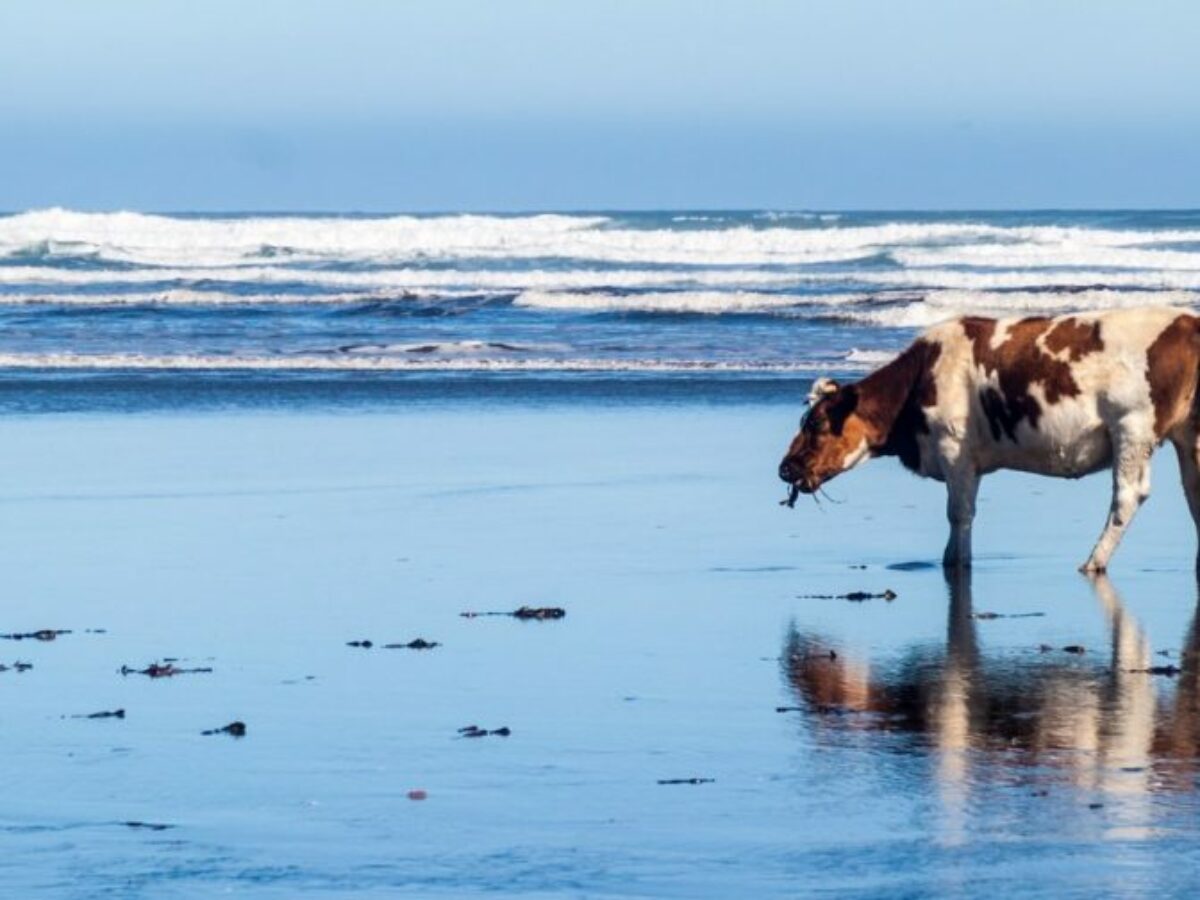Methane busting cow feed wins $1 million global prize

CSIRO's development of a livestock feed made from seaweed that reduces methane emissions in beef and dairy cattle by more than 80 per cent has won the world’s largest monetary reward on the global food arena worth $1 million.
The Food Planet Prize which went to CSIRO's FutureFeed recognises initiatives, organisations and individuals working to secure the world´s food supply while fostering a healthy and resilient biosphere.
Awarded by the Curt Bergfors Foundation, FutureFeed was selected from 650 nominations and was awarded the prize for its benefits to the climate and environment, while also having opening up a new global industry in seaweed farming.
When just a handful of the Asparagopsis seaweed is fed to cattle, it not only drastically reduces the greenhouse gas contribution from agriculture, but there is also a strong indication it increases livestock productivity.
In August this year, CSIRO established the FutureFeed company to take the livestock feed to market with investment from AGP Sustainable Real Assets-Sparklabs Cultiv8 Joint Venture, GrainCorp, Harvest Road, Woolworths and CSIRO.
Dr Michael Battaglia, CSIRO scientist and Director of FutureFeed said the funds from the prestigious award will be used to help meet the goal of delivering the world’s first ultralow-carbon beef and dairy by mid-2021.
Dr Battaglia said: “We plan to use part of the prize to establish a fund to enhance the participation of aboriginal and other first nations people around the world in Asparagopsis supply chains.
“Already in Australia we have agreements between the Indigenous Land and Sea Corporation involving the Narrunga Nation Aboriginal peoples, and a seaweed growing company CH4 with the intent to develop commercial scale Asparagopsis cultivation and processing to generate maximum benefit for the Narrunga people.”
Dr Rob Kinley, Chief Scientist with FutureFeed said the remainder of the prize would be used to advance research and development on how best to deliver FutureFeed to livestock that graze freely in rangeland systems.
Dr Kinley said: “Livestock produce up to 18 per cent of total greenhouse gas emissions, mainly in the form of methane.
“We now have a solution that is a simple plug and play into existing feeding systems to reduce emissions and help farmers and producers create more food and build new and more sustainable businesses and enterprises.”
FutureFeed was developed with Meat & Livestock Australia and James Cook University and subsequent collaboration at UC Davis and Penn State in the US with both dairy and feedlot animals.
Picture: CSIRO
Subscribe to our free @AuManufacturing newsletter here.
Topics Manufacturing News Technology
@aumanufacturing Sections
Analysis and Commentary Awards casino reviews Defence Gambling Manufacturing News Online Casino Podcast Technology Videos




